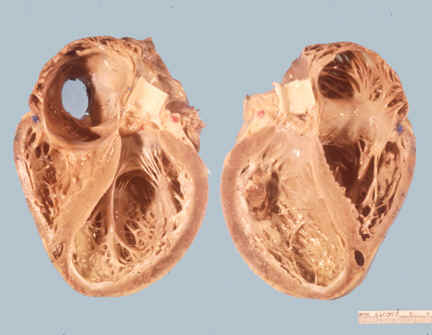- Moderate to severe depression increased risk of death by five times.
- Twenty to 40% of heart failure patients suffer with depression post-op.
- Increased risk of death associated with moderate to severe depression was independent both of other health problems and of the severity of heart failure.
- “Depression is strongly associated with death during the year following discharge from hospital after an admission for the exacerbation of heart failure; we expect that the link persists beyond one year."
While the mechanism remains mysterious, the correlation between depression and death following treatment for heart failure is strong and consistent. The study, OPERA-HF, conducted recently in England and presented at the 2015 annual meeting of the European Society of Cardiology in Seville, Spain included data on 154 patients who were followed for about one year.

Of the 154 patients, 27 had mild depression and 24 had moderate-to-severe depression during the follow up. During this period 27 patients died. Patients with moderate-to-severe depression were 5 times more likely to die compared with those who had mild or no depression. Patients who were not depressed had an 80% lower mortality risk.
"Our results show that depression is strongly associated with death during the year following discharge from hospital after an admission for the exacerbation of heart failure,” explained chief researcher John G. F. Cleland, Professor of Cardiology at Imperial College London and the University of Hull in England. “We expect that the link persists beyond one year," he added.
Depression is often related to loss of motivation, loss of interest in everyday activities, sleep disturbances, changes in appetite, and changes in body weight. All these factors can affect cardiac health. "This could explain the association we found between depression and mortality," Dr. Cleland added.
Despite the findings, Dr. Cleland is not in favor of prophylactically prescribing antidepressants to depressed heart failure patients.
"As doctors we are members of a caring profession,” Dr. Cleland said, “and should be sympathetic to our patients' plight but I am not in favor of immediately prescribing anti-depressants. Studies suggest that they are not effective in reducing depression in patients with heart failure. Clinicians should, however, screen patients with heart failure for depression and consider referring those affected for counseling."
SOURCE: European Society of Cardiology, news release, May 23, 2015.
